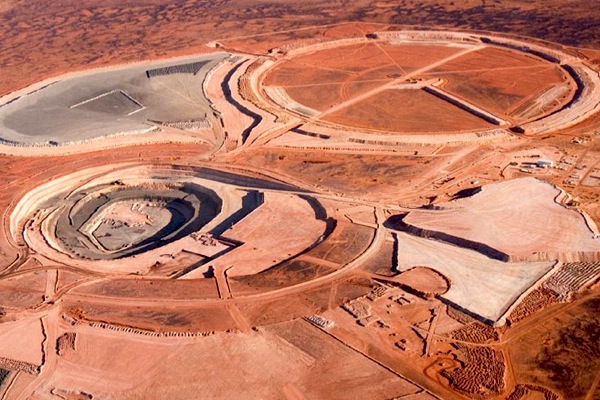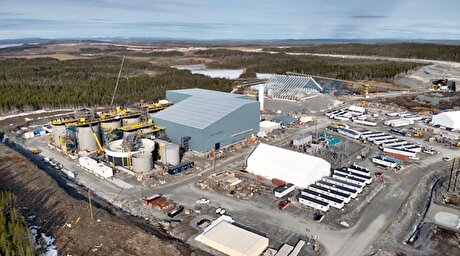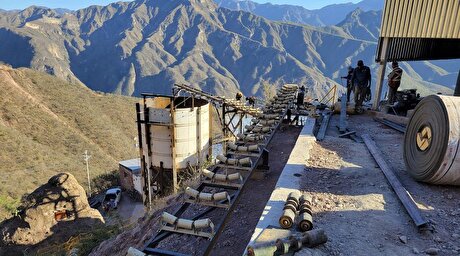
Copper to come back up way before iron ore does: OZ Minerals

Copper prices are likely to recover before iron ore does as high tech products, including batteries and electric cars, are set to boost demand for the metal, the chief executive of OZ Minerals (ASX:OZL) Andrew Cole, told Noticiasdemineracao (in Portuguese).
According to executive, copper has been unfairly compared to seaborne during the ongoing commodities rout, when the red metal has “much better long-term fundamentals” than iron ore, whose fortune is extremely linked to China.
While copper prices are rising back above $5,000 a tonne from the 6-1/2 year lows they hit last month, analysts are focused on weather-related disruptions in countries including Chile and Zambia (thought to have taken out 1.2-1.5 million tonnes of capacity this year), will have an impact in a market estimated at 22 million tonnes.
Cole, who took office at the helm of OZ in December last year, says the company has been moving away from iron ore acquisitions, despite the current bargain prices, and that it will continue to focus on copper because of the much better long-term outlook.
Andrew Cole assumed as chief executive of OZ Minerals in December 2014.
OZ Minerals, which is Australia’s third-biggest copper producer, has a mine in South Australia and holds the nation’s largest undeveloped copper deposit. Earlier this year, the company’s head office moved to the state capital Adelaide from Melbourne and reduced its corporate team.
The miner has also been looking to innovative methods to increase production. The company has developed a hydromet processing plant, where it combines new chemistry with existing technology in order to boost copper-in-concentrate grades and reduce impurities to very low levels.
It said this week the first trial results from the plant indicate that the process is scalable, adding it is already returning copper-in-concentrate levels of more than 55%.
The announcement came as South Australia is stepping up efforts to support the copper industry in the state, launching a new strategy to ramp up production.
Despite Cole’s positive outlook, traders worry about China’s falling demand as the world's No. 2 economy drives about 40% of global copper consumption and they doubt lower purchases by the nation will be made up by other countries, leading to a supply glut.


Energy Fuels soars on Vulcan Elements partnership

China extends rare earth controls to imported material

Galan Lithium proceeds with $13M financing for Argentina project

Northern Dynasty sticks to proposal in battle to lift Pebble mine veto

Ukraine launches tender for major lithium deposit

KoBold Metals granted lithium exploration rights in Congo

Freeport Indonesia to wrap up Gresik plant repairs by early September

Kyrgyzstan kicks off underground gold mining at Kumtor

Critical Metals signs agreement to supply rare earth to US government-funded facility

Equinox Gold kicks off ore processing at Valentine mine

India considers easing restrictions on gold in pension funds

Luca Mining expands Tahuehueto mine with Fresnillo land deal

Kyrgyzstan kicks off underground gold mining at Kumtor

Ukraine launches tender for major lithium deposit

KoBold Metals granted lithium exploration rights in Congo

Freeport Indonesia to wrap up Gresik plant repairs by early September

Energy Fuels soars on Vulcan Elements partnership

Northern Dynasty sticks to proposal in battle to lift Pebble mine veto

Giustra-backed mining firm teams up with informal miners in Colombia

India considers easing restrictions on gold in pension funds

Luca Mining expands Tahuehueto mine with Fresnillo land deal

Kyrgyzstan kicks off underground gold mining at Kumtor

Ukraine launches tender for major lithium deposit

Freeport Indonesia to wrap up Gresik plant repairs by early September

Energy Fuels soars on Vulcan Elements partnership

Northern Dynasty sticks to proposal in battle to lift Pebble mine veto

Giustra-backed mining firm teams up with informal miners in Colombia

Critical Metals signs agreement to supply rare earth to US government-funded facility


















